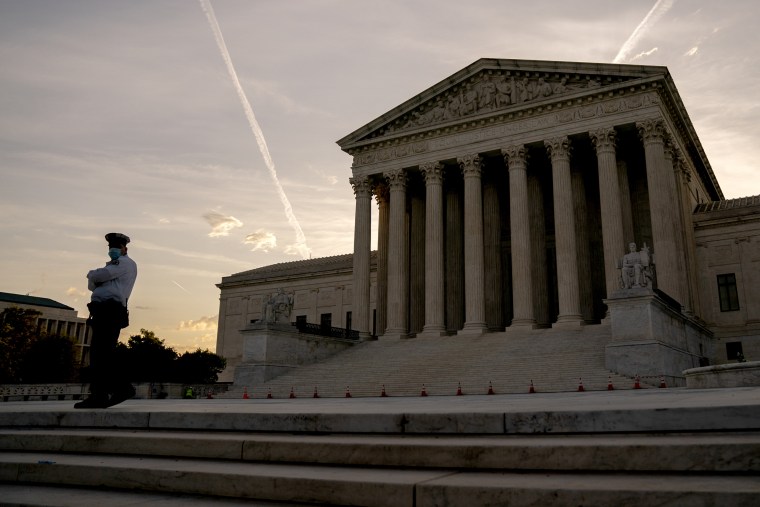WASHINGTON — The Supreme Court on Monday made it easier to sue police and the government for malicious prosecution when charges are later dropped.
In a 6-3 ruling, the court said that in order to sue, a defendant doesn't have to be found not guilty by a judge or jury and prosecutors don't have to state that they wrongly filed charges. It’s enough, the court said, if the charges are simply dismissed.
“The question of whether a criminal defendant was wrongly charged does not logically depend on whether the prosecutor or court explained why the prosecution was dismissed,” Justice Brett Kavanaugh wrote for the court’s majority.
The ruling was a victory for a Brooklyn man, Larry Thompson, who was arrested after a relative who was staying in his apartment called 911 and claimed Thompson was sexually abusing his newborn daughter.
When the police arrived, he said they couldn’t come in without a warrant. They barged in anyway and handcuffed him after a brief scuffle. The baby was taken to a hospital for evaluation, but the only marks on the child turned out to be diaper rash.
The relative who called 911 “apparently suffered from a mental illness,” court records said.
Even so, Thompson was charged with resisting arrest and kept in jail for two days. The prosecutor then dropped the charges, and the judge dismissed the case — both without explanation.
Thompson sued, claiming malicious prosecution and violation of his constitutional rights. He prevailed before a federal trial judge, but the U.S. Court of Appeals for the 2nd Circuit ruled that such a claim can succeed only when a case ends with some affirmative indication of innocence.
The Supreme Court on Monday said that ruling was mistaken. Dissenting, Justice Clarence Thomas, Samuel Alito, and Neil Gorsuch said the court was wrong to validate Thompson’s claim under the Fourth Amendment. They said the elements of a malicious prosecution are wholly different than the constitutional guarantee against illegal search and seizure and called Thomas' lawsuit “a hybrid claim of uncertain scope.”
Marie Miller, an attorney for the Institute for Justice, a nonprofit public interest law firm, filed a friend-of-the-court brief on Thompson’s behalf. She said the court’s decision "rightly rejected an additional shield for government officials who have violated constitutional rights.”
Such a shield “flipped the principle of innocent-until-proven-guilty on its head," Miller said. "It also incentivized prosecutors to charge people with crimes they did not commit to shield officers from liability.”

